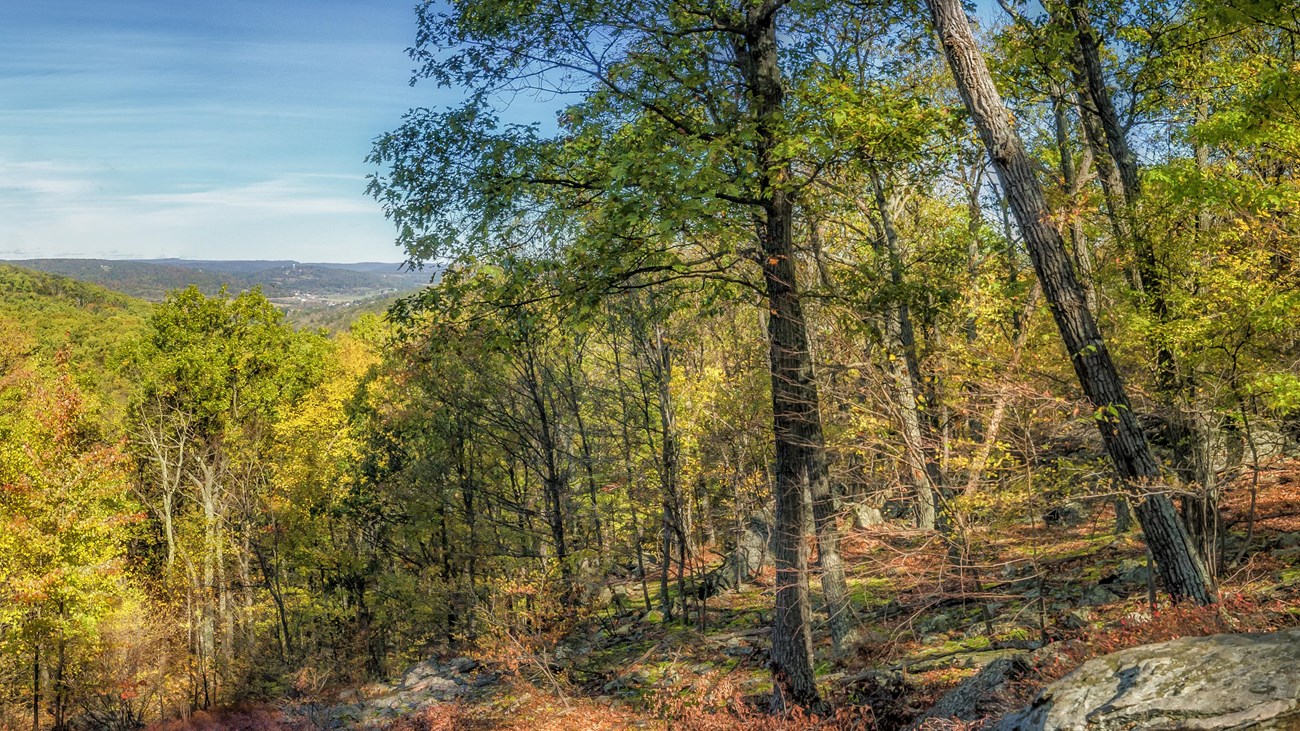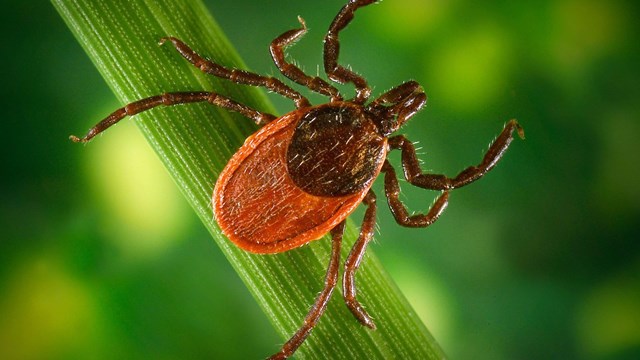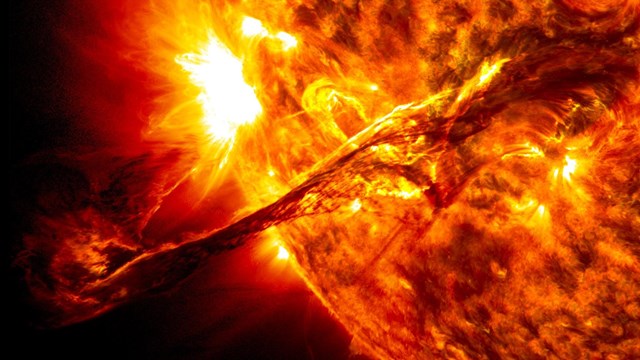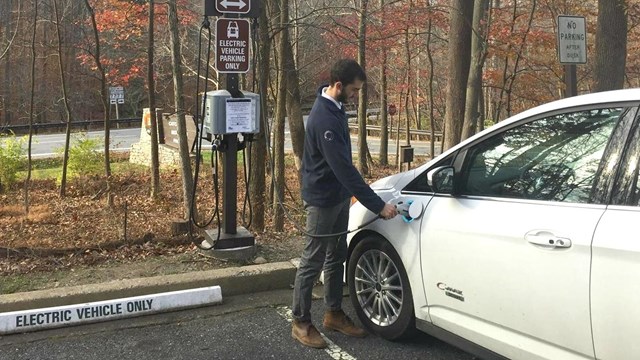
NPS/Connor Henzel Get Involved with your Public LandsVolunteers, scouts, and trail stewards are a crucial part of conservation. Catoctin Mountain Park is looking for people who care about our natural and cultural resources and who care about people. Fulfilling our National Park Service mission of preserving unimpaired the natural and cultural resources d for the enjoyment of future generations is an exciting challenge. We can't do it alone. We need your help in keeping Catoctin a very special place for our visitors to enjoy. You can help right here in your park by volunteering to pull invasive plants, helping with trail maintenance, or volunteering on National Public Lands Day. These conservation activities increase forest resilience to climate change by reducing pressure from invasive plants, and keeping foot traffic on trails and away from fragile native plants and soils. Find a volunteer opportunity at Catoctin Mountain Park. Minimize your Impact in NatureIt may not seem like it, but our presence in nature as hikers, bikers, and campers has an impact. Natural areas can sustain heavy damage through repeated misuse and disrespect. The Leave No Trace principals were created as a set of ethical practices to use when recreating in nature, to keep your impact to a minimum. Please consider following them at Catoctin Mountain Park, and any other natural areas you love. There are Leave No Trace principles available for a variety of outdoor recreation activities, whether you like to hike, camp, raft, or fish.
Your Impact at HomeThere are many changes to your routine you can make to reduce your impact at home. Something as simple as lowering your thermostat when away from home, or during the night, can also lower your energy bill. Try to think about your consumption patterns. Many of us recycle, but reducing consumption in the first place (or reusing what we already have) is even more important. Simple changes you could make today:
Do you know what your "carbon footprint" is? The Environmental Protection Agency has developed tools to help individuals and households reduce greenhouse gas emissions and take action, such as a Personal Emissions Calculator. This calculator provides an estimate of household greenhouse gas emissions resulting from household energy use and waste disposal, and it gives you information you can use to identify ways to reduce your personal greenhouse gases. Fuel Saving Driving TechniquesThe way you drive could be increasing your impact on the planet – and your wallet.Simple changes to your driving habits and vehicle can increase its fuel efficiency and save money. These include driving conservatively, removing excess weight, performing regular maintenance, and slowing down. 
Eastern Forests and Climate
Changes in seasonal weather could have an impact on eastern forests, and the animals that call them home. 
Health and Climate Change
Mosquito and tick-borne diseases are on the rise in a warming climate. 
Climate Change
The greenhouse effect is becoming stronger due to human activity. 
Sustainability in the Park
From alternative fuels to energy saving appliances, the park is working towards a low carbon future. |
Last updated: May 2, 2020
